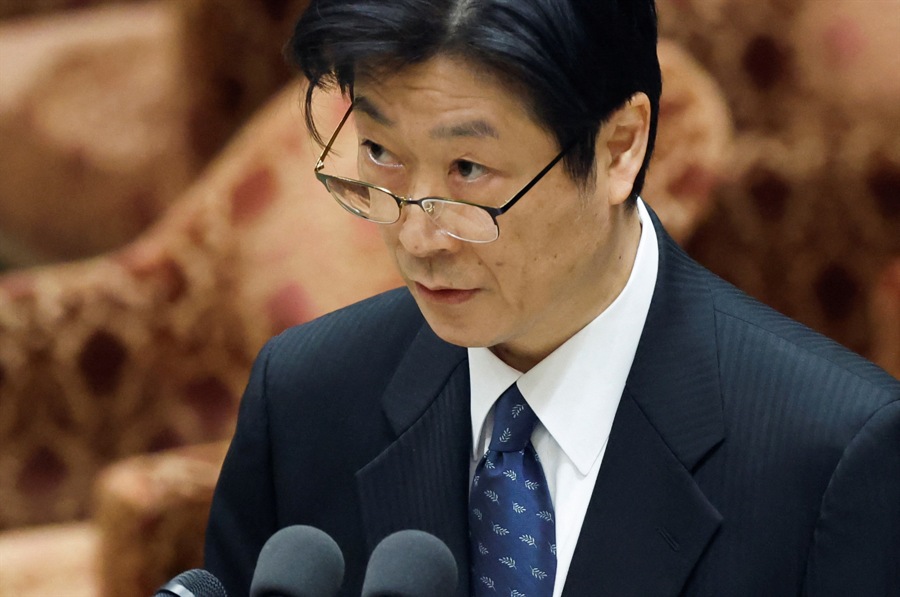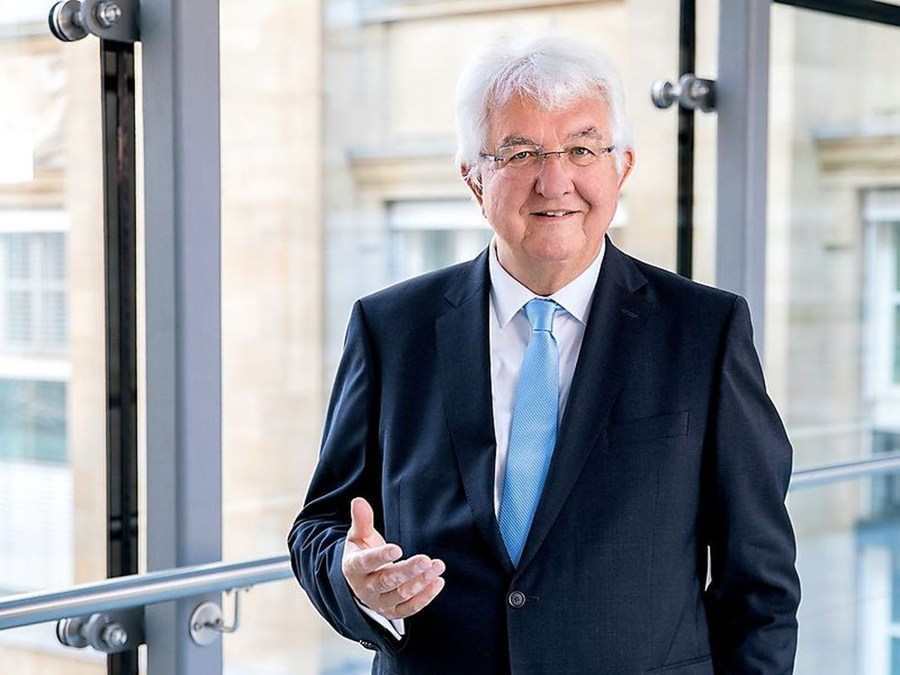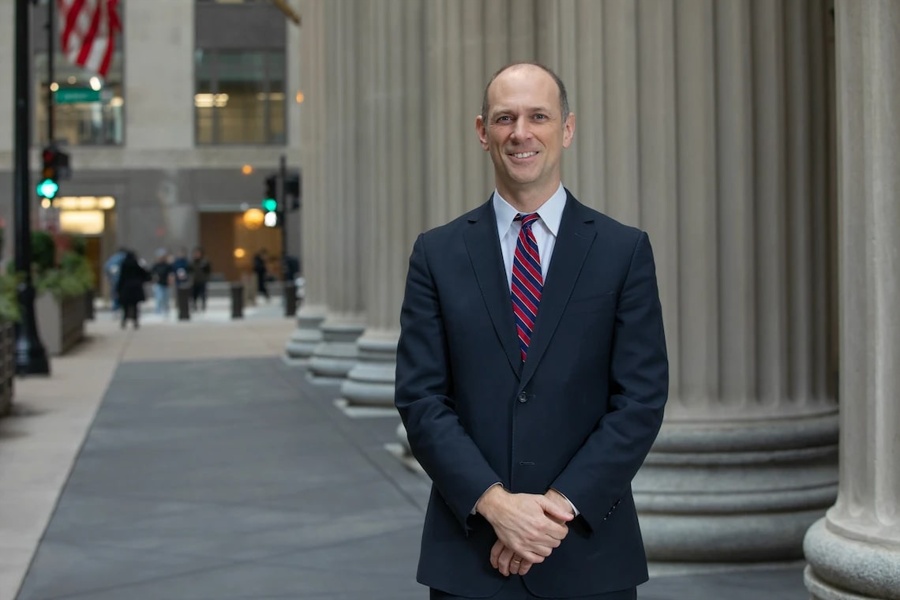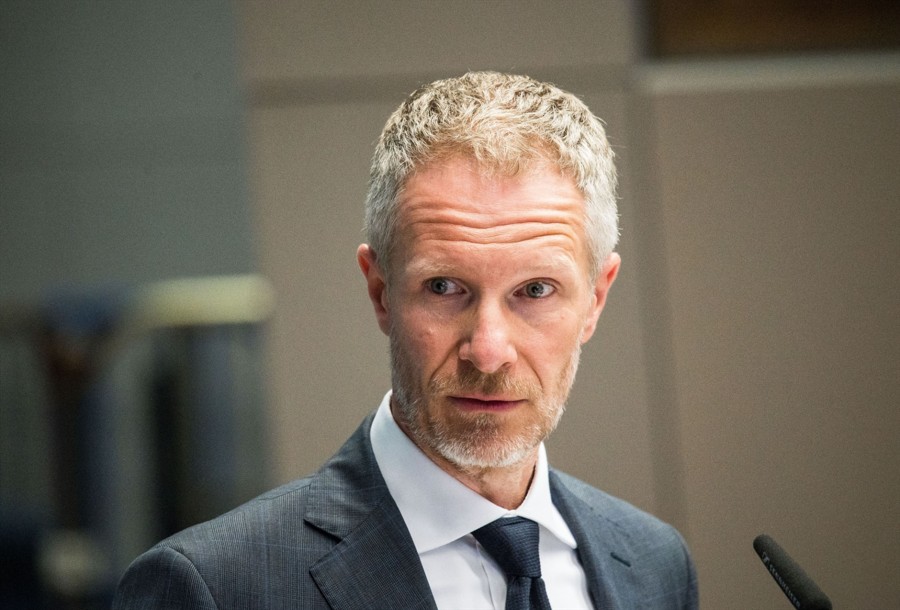Monday:
ECB’s Villeroy (hawk – voter) spoke over the weekend and on Monday and although he acknowledged that rates might have peaked, he added that they will be kept at elevated levels for a long time:
- In the euro area, I believe we will soon reach the high point of interest rates.
- But when I say high point, this isn't a peak, rather it will be a high plateau, on which we will have to remain for a sufficiently long time to fully transmit all the effects of monetary policy.
- If we can reach our inflation target with a soft landing rather than a hard one, it’s much better.
- In my judgement, these risks are now at least symmetric, we always can do more if needed.
- The risk of doing too much on rates needs to be balanced against the risk of not doing enough.
- In the risk of doing too much, with a recession and sharp fall of inflation, we would have to rapidly reverse course.
- 'Testing until it breaks' is not a sensible way to calibrate monetary policy.
- Maintaining the current level of interest rates will bring down inflation.
- Have to monitor current oil price rebound for possible effects on inflation expectations, wages.
- If markets fully incorporate our strategy, they shouldn’t expect cuts before a sufficiently long time.
- What we see now is slowdown but still with positive growth.
- Positive growth is expected for 2024-25.
- Interest rates should remain at this level for a sufficiently long period of time.
- I have less fear about the economy than I did a year ago.
- Inflation should come back towards 2% target by 2025 while avoiding recession for the economy.

BoJ Governor Ueda basically repeated the message at the last BoJ press conference, that is maintaining monetary easing until a sustainable achievement of the 2% inflation target is clearly in sight:
- Japan's economy is recovering moderately.
- Our basic stance is that we must patiently maintain monetary easing.
- Current policy framework has big stimulative effect on economy, but at times could cause big side-effects.
- BOJ's July move helped heighten sustainability of our monetary easing framework.
- Our baseline scenario is for key driver of inflation to gradually switch, strengthen virtuous wage-inflation cycle.
- Effect of rising import prices likely to gradually dissipate.
- Uncertainty surrounding our baseline scenario is very high, not sure at this stage whether this will materialize.
- There is good chance wage growth will accelerate as competition for talent intensify.
- Changes in corporate behaviour could speed up more than expected.
- On the other hand, wages, prices may struggle to rise if Japan's economy is hit by negative external or internal shocks.
- Many firms still have not decided whether to hike wages significantly, so we must scrutinise whether changes in corporate wage-setting behaviour could be sustained.
- Stable, sustainable achievement of 2% inflation not yet in sight.
- Japan's economy is at critical stage on whether it can achieve a positive wage-inflation cycle.
- Must continue to be vigilant to chance past sharp US rate hikes could affect economy, financial system with a lag.
- Chinese economy's slow pace of pick-up is also worrying.
- It is true inflation is exceeding 2% for prolonged period, but that alone cannot lead us to conclude that Japan is close to stably, sustainably achieving our target.
- Key to whether Japan is close to achieving our target is whether wage growth leads to moderate rise in inflation.
- Japan firms are changing prices more frequently than in past, which is important sign suggesting wages and inflation could move in tandem.
- May end YCC when stable and sustainable achievement of 2% inflation target is foreseen.
- Don't have a clear image in mind yet on how to tweak YCC.
- Don't expect a positive wage cycle to emerge when consumption, capex are sluggish.

BoJ’s Uchida reaffirmed Ueda’s comments as he doesn’t yet see a sustainable achievement of the 2% inflation target in Japan:
- The Bank needs to patiently continue monetary easing.
- Uncertainty is high regarding Japan's economy.
- The Bank's decision in July to make the JGB 10 year yield target flexible is aimed at flexibility in responding to upside and downside risks.
- We are not in a situation where achievement of the BOJ's 2% inflation target is in sight.

ECB’s Kazaks (hawk – voter) is calling for a pause in October, which is already fully expected:
- The hike from the ECB in September may allow a pause in October.

ECB’s de Cos (dove – non voter) reaffirmed the ECB’s stance of keeping rates higher for longer now:
- The European Central Bank must avoid both insufficient and excessive tightening.
- If rates are kept at 4% long enough, we should reach our 2% goal.
- Governments must roll back their energy support measures - and if new measures on energy are needed, they should be targeted.
- We need structural reforms to strengthen the supply side.
- Fiscal policy for 2024 should tend toward restrictive.

The German September IFO Business Climate Index beat expectations although the index edged lower than the previous reading following an upwardly revised August figure:
- IFO 85.7 vs. 85.2 expected and 85.8 prior (revised from 85.7).
- 85.7 is one of the weakest IFO index readings of the last five years.
- Current Assessment 88.7 vs. 88.0 expected and 88.0 prior.
- Expectations 82.9 vs. 82.8 expected and 82.6 prior.

Fed’s Goolsbee (dove – voter) reaffirmed his stance of keeping rate higher for longer now instead of delivering additional rate hikes:
- I think we're getting close to questions about how long we will hold, rather than how high.
- It feels like we're going to hold longer than markets were expecting.
- The risk of inflation staying higher is the bigger risk.
- The employment side of the economy is going very well.
- External shocks have derailed the Fed from achieving a soft landing in the past, so that's keeping me up at night.
- Inverted yield curve is a mentality of looking at the past and applying it to future but covid has made a lot of predictions look 'goofy'.

ECB’s Lagarde (neutral – voter) acknowledged the expected weakness in the Eurozone in the next quarter:
- Recent indicators point to further weakness in the third quarter.
- Job creation in the services sector is moderating and overall momentum is slowing.
- Inflation continues to decline but is still expected to remain too high for too long.
- We aim to conclude review of ECB framework by spring 2024.

ECB’s Schnabel (hawk – voter) echoed Lagarde’s worries about the slowdown in the Eurozone:
- Activity in the eurozone is clearly moderating.
- There is not yet an all-clear for the inflation problem.
- Unusual contraction in monetary aggregates is unlikely to foreshadow a deep recession but rather reflects a significant rebalancing of portfolios.

Fed’s Kashkari (hawk – voter) is starting to get more neutral as he’s not absolutely sure on another rate hike and acknowledges that the Fed may need to cut rates if inflation falls more than expected raising real rates too much:
- Still more work to do on services inflation.
- Fed can definitely get back to 2% inflation.
- May need to cut rates if real rates are tightening.
- US rates probably have to go a little bit higher, be held there for longer, to cool things off.
- Falling inflation next year might justify backing off the federal funds rate to stop it from getting tighter.
- I am one of the FOMC policymakers who sees one more rate hike this year.
- In case of a government shut down that means we don't have access to the usual data, we will supplement with the best private data that we have.
- You always have to do your best with the best data available, I'm confident we'll be able to make decisions.
- That the yield curve is un-inverting is not necessarily bad news and it could be good news.
Kashkari has also published an essay on Tuesday where he said that he sees a 60% chance of a soft landing and a 40% chance of significantly higher interest rates.

Tuesday:
ECB’s Muller (hawk – voter) is joining the “higher for longer” camp as he doesn’t expect any more rate hikes as things stand.

The US Consumer Confidence for September missed expectations although the present situation index is still pointing to a resilient labour market:
- Consumer confidence 103.0 vs. 105.5 expected and 106.1 prior.
- Present situation index 147.1 vs. 146.7 prior (revised from 144.8).
- Expectations index 73.7 vs. 83.3 prior (revised from 80.2).
- 1 year inflation expectations 5.8% vs. 5.8% prior.
- Jobs hard-to-get 13.6 vs. 14.1 prior.

ECB’s Holzmann (hawk – voter) feels uneasy with keeping rates at these levels for longer with such a high underlying inflation:
- It is unclear whether we're at peak rates yet.
- Cannot exclude further rate hikes.
- Upside inflation risks are still out there.
- Afraid to stay high with the economy strong.
- Economy could yet surprise on the upside.
- Persistence of underlying inflation very high.
- Monetary policy is working.
- Hopefully we can discuss PEPP soon, ECB should consider reducing.

Wednesday:
The BoJ published the minutes of its September monetary policy meeting (it’s all about wages):
- Members agreed it was important to check whether wage hikes will continue next year and onward.
- A few members said chance of firms continuing to raise wages next year was high
- one member said there was strong chance corporate wage, price-setting behaviour will be sustained.
- One member said must check whether wage rises will broaden as 60% of Japan's small, medium-sized firms run red ink and have weak profit standings.
- One member said inflation could overshoot expectations as change in corporate behaviour broadens.
- One member said wages, sales prices could rise at pace unseen in past.
- One member said many small, medium-sized firms say they have trouble passing on rising costs, which could mean wage growth could lose momentum.
- Members agreed the BoJ must maintain current monetary easing to stably, sustainably hit price target.
- Many members said Japan has stable, sustained achievement of price target, accompanied by wage growth, was not yet in sight.
- One member said there was still big distance before tweaking negative rate policy.
- One member said the BoJ must sustain YCC framework in line with commitment it has made in its statement.
- One member said now is time to wait for trend inflation to heighten.
- One member said the BoJ could gain clarity in Jan-March next year to determine whether Japan can sustainably hit price target.

The PBoC promised to accelerate its macro policy adjustments:
- Will step up macro policy adjustments.
- To focus on expanding domestic demand, boosting confidence.
- To implement monetary policy precisely and forcefully.
- Will keep yuan exchange rate basically stable.

The Australian Monthly CPI for August came in line with forecasts with the Core measure continuing its downtrend and the Trimmed Mean remaining sticky:
- CPI Y/Y 5.2% vs. 5.2% expected and 4.9% prior.
- CPI M/M 0.6% vs. 0.3% prior.
- Core CPI Y/Y 5.5% vs. 5.8% prior.
- Trimmed Mean CPI Y/Y 5.6% vs. 5.6% prior.

ECB’s Elderson (hawk – voter) keeps the door open for further rate hikes as he says that “interest rates have not necessarily peaked”, but the majority of the Governing Council is on the higher for longer camp at the moment anyway.

Fed’s Kashkari (hawk – voter) spoke again on CNBC but didn’t add anything new to his previous comments:
- We're committed to 2% inflation.
- There is a risk that rates might have to go higher but hard to know.
- Fed is not trying to create a recession.
- Economic data suggests Fed not as restrictive as it appears.
- We are allowing the data to drive Fed decisions.
- Fed has made a lot of progress on inflation.
- Data will tell the Fed if more hikes are needed.
- We want to see workers get better wages.
- Fed is watching strikes for economic impact.

Thursday:
The Australian Retail Sales for August missed expectations:
- Retail Sales M/M 0.2% vs. 0.3% expected and 0.5% prior.
- Retail Sales Y/Y 1.5% vs. 2.1% prior.

The US Q2 Final GDP came in line with expectations but the downward revision in consumer spending caught the eye:
- Q2 Final GDP 2.1% vs. 2.1% expected.
- Consumer spending 0.8% vs. 1.7% preliminary.
- GDP final sales 2.1% vs. 2.2% preliminary.
- GDP deflator 1.7% vs. 2.0% preliminary.
- Core PCE 3.7% vs. 3.7% preliminary.
- Exports -9.3% vs. -10.6% preliminary.
- Imports -7.6% vs. -7.0% preliminary.
- Business investment 5.2% vs. 3.9% preliminary.
- Corporate profits 6.9% vs. -10.6% preliminary.

The US Jobless Claims crushed expectations once again:
- Initial Claims 204K vs. 214K expected and 202K prior (revised from 201K).
- Continuing Claims 1670K vs. 1675K expected and 1658K prior (revised from 1662K).

Fed’s Goolsbee (dove – voter) keeps his usual stance with the higher for longer mantra:
- Holding to 'inevitability’ that job losses are needed to slow inflation risks a 'near-term policy error.’
- Some analysis shows inflation reaching target soon, 'without further policy tightening’ and only a modest slowdown in growth.
- Fed needs to be 'extra careful' of tying policy to historical relationships that may not hold up in the current economy.
- Recent data, with inflation slowing without job losses, have run against past U.S. patterns.
- Fed will return inflation to target but has a chance to do something rare by accomplishing that without recession.
- Evidence points to the outbreak of inflation in 2021 as largely supply-related; ignoring supply improvements is a recipe for overshooting.
- Long-run inflation expectations are 'well-anchored,' can help lower inflation with 'less economic pain' than previously.
- Importance of expectations and Fed credibility makes proposals to raise the inflation target from 2% 'quite risky.'
- Risks to the outlook include oil prices, slowdown in China, possibility of a protracted U.S. auto strike, or a disruptive government shutdown.
- Housing will be key to continued inflation progress in the next few quarters, with the risk that rising home prices could also boost market rents.
- Better productivity could mean long-run potential is not as low as some have feared, allowing more growth without inflation.
- Wages typically lag prices, so short-term movements should not be used to predict inflation.
- If Fed sees lack of progress on the price side, it will have to raise restraint.
- Trying not to put much weight on conventional measures of overheating.
- Have not decided what to do at the next meeting.
- Recent inflation was mostly supply, though there was a demand component.
- The Fed will have a legitimate debate about how the current framework worked in this period of inflation.
- Inflation targets do risk giving a false sense of precision around a variable that is noisy.
- It will matter a lot how long auto strike lasts in terms of its GDP impact.
- Auto strikes have not had a historical large impact on inflation. However current capacity and inventory situation is different.
- Fed is trying to get a handle on whether an extended strike might lead to different price outcomes.
- Have not been a big fan of an explicit Fed target.
- Once Fed is back to 2% target or on a clear path to it, then it would be perfectly appropriate to discuss the target itself.
- If the long end continues to increase, Fed will have to take account of that as a form of tightening.

Fed’s Barkin (neutral – non voter) didn’t offer much in terms of forward guidance as he just emphasised data dependency, especially on the labour market side:
- It will be hard to figure out in the economy without data.
- Credit card data is a good alternative data set.
- I try to talk to businesses and workers what's happening in the economy.
- Growth still seems 'solid' in the economy.
- It makes sense that lower and middle-income spending is adjusting to a slower pace.
- Growth will moderate from earlier this year.
- The data on consumer spending in the past few months has been 'extraordinary' but he expects it to slow.
- I've heard that the middle-income consumer is starting to 're-prioritize' spending.
- I'm expecting the next quarter to be 'solid' no 'robust'.
- Pace of growth in Q1/Q2 is unlikely to continue.
- I think we will see demand softening.
- It's very difficult to imagine inflation settling with growth above trend.
- We've unleashed people's ability to use price as a lever.
- We're still seeing wage pressure in the skilled trades.
- The last five months of inflation data have been encouraging.
- Fed holding steady at the September FOMC meeting was appropriate.
- Fed has time to see data before deciding what’s next for rates.
- The path forward depends on what happens with inflation.
- Will be watching the job market closely for clues.
- Cautions against reading too much into Federal Reserve forecasts.
- Says the job market has remained very healthy.
- Is not sure how the economy will perform over coming months.
- There is still a lot of uncertainty how the Fed's balance sheet influences the economy.
- Unclear how far Fed will have to take balance sheet wind down.
- Surprised economy has been so strong despite aggressive Fed action.
- Fed tightening still working its way through economy.
- Future job market gains depend on lowering inflation.
- Some slow down needed to lower inflation.
- Effort to lower inflation will have smaller job market impact this time.
- Expects some amount of unemployment rise.
- Decline in Fed reverse repo take up isn't a surprise.

The Tokyo CPI, which is seen as a leading indicator for National CPI, came in lower than the previous figures:
- Tokyo CPI Y/Y 2.8% vs. 2.9% prior.
- Tokyo CPI ex Food and Energy Y/Y 2.4% vs. 2.6%.
- Tokyo CPI ex Food Y/Y 2.5% vs. 2.6% expected and 2.8% prior.

The Japanese Unemployment Rate remained unchanged at 2.7% vs. 2.6% expected.

The UK Q2 Final GDP came in line with expectations at 0.2% vs. 0.2% expected.

The Eurozone CPI missed expectations across the board which gives the ECB a sigh of relief:
- CPI Y/Y 4.3% vs. 4.5% and 5.2% prior.
- CPI M/M 0.3% vs. 0.5% prior.
- Core CPI 4.5% vs. 4.8% expected and 5.3% prior.
- Core CPI M/M 0.2% vs. 0.3% prior.

ECB’s Vasle (hawk – voter) said that the “ECB is probably done with rate hikes” as the central bank switched now to a higher for longer stance.

The US PCE data came basically in line with expectations:
- PCE Y/Y 3.5% vs. 3.5% expected and 3.4% prior (revised from 3.3%).
- PCE M/M 0.4% vs. 0.5% expected and 0.2% prior.
- Core PCE Y/Y 3.9% vs. 3.9% expected and 4.3% prior (revised from 4.2%).
- Core PCE M/M 0.1% vs. 0.2% expected and 0.2% prior.

The Canadian Monthly GDP for July missed expectations with the preliminary August reading pointing to a slight gain:
- July GDP 0.0% vs. 0.1% expected and -0.2% prior (revised from 0.1%).
- August Preliminary GDP 0.1%.

The highlights for next week will be:
- Monday: BoJ Summary of Opinions, Swiss Retail Sales, Eurozone Unemployment Rate, US ISM Manufacturing PMI.
- Tuesday: RBA Policy Decision, Swiss CPI, US Job Openings.
- Wednesday: RBNZ Policy Decision, Eurozone Retail Sales, Eurozone PPI, US ADP, US ISM Services PMI.
- Thursday: US Challenger Job Cuts, US Jobless Claims.
- Friday: Japan Wage data, Swiss Unemployment Rate, US NFP, Canada Jobs report.
That’s all folks, have a great weekend!